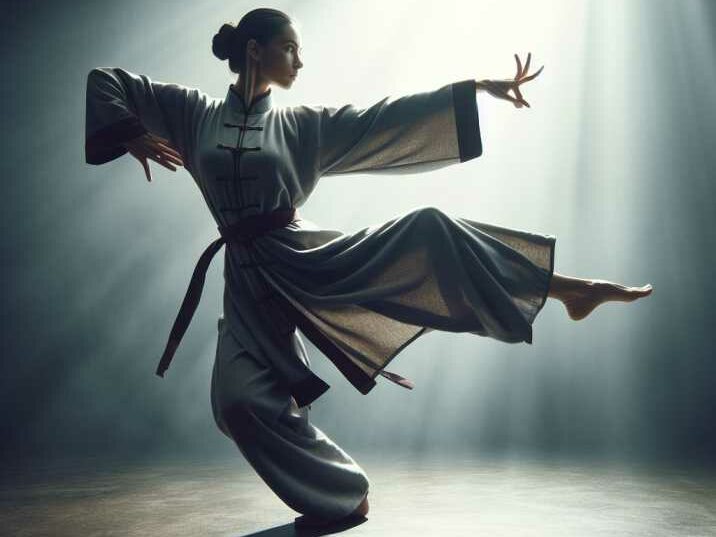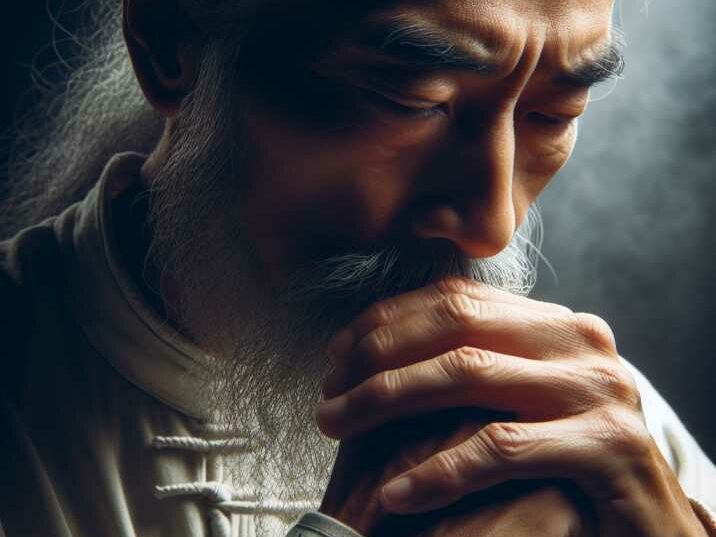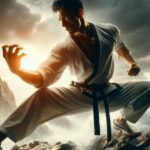Introduction:
Table of Contents
Kung Fu, with its origins deeply rooted in ancient China, has long been revered for its remarkable martial prowess and discipline. But beyond its reputation as a formidable combat technique, Kung Fu possesses a hidden dimension—a realm where it transcends mere physicality to become the artistry of Kung Fu expression form. In this article, we embark on a journey to unravel the Artistry of Kung Fu, exploring its intricacies and delving into the question: Can Kung Fu be practiced as a form of artistic expression?
The Artistry of Kung Fu:
Exploring Its Essence Kung Fu, also known as Wushu, encompasses a diverse range of fighting styles, each characterized by its unique techniques and philosophy. From the fluid movements of Tai Chi to the explosive strikes of Shaolin Kung Fu, practitioners of this ancient discipline often liken their movements to a carefully choreographed dance—a symphony of grace and power.

The Harmony of Body and Mind
At the heart of Kung Fu lies the principle of harmonizing body and mind—a concept deeply ingrained in traditional Chinese philosophy. Balance, flexibility, and control are not merely physical attributes but also manifestations of inner peace and spiritual alignment. Through diligent practice and meditation, Kung Fu practitioners strive to achieve a state of oneness with their surroundings, transcending the boundaries of the self.
The Aesthetic Beauty of Movement
In the artistry of Kung Fu. every movement is imbued with intention and purpose. From the elegant sweep of a crescent kick to the precise execution of a palm strike, each technique is executed with precision and grace. Like a painter wielding a brush or a dancer gliding across the stage, Kung Fu practitioners express themselves through the fluidity of their movements, transforming combat into an art form.
The Role of Tradition and Culture
Beyond its physical aspects, Kung Fu is deeply intertwined with Chinese culture and tradition. Passed down through generations, each style of Kung Fu carries with it a rich tapestry of stories and symbolism. From the legendary exploits of ancient warriors to the philosophical teachings of Taoism and Confucianism, the practice of Kung Fu serves as a bridge connecting the past with the present—a living testament to the enduring spirit of Chinese civilization.

Can Kung Fu be Practiced as a Form of Artistic Expression?
The question remains: Can Kung Fu truly be considered a form of artistic expression? While some may argue that its primary purpose is self-defense, others contend that its aesthetic beauty and philosophical underpinnings elevate it to the realm of art. Ultimately, the answer may lie in the eye of the beholder. For those who view Kung Fu through the lens of creativity and expression, its status as an art form is undeniable.
Table of Information Artistry of Kung Fu:
| Aspect | Description |
|---|---|
| Styles of Kung Fu | Tai Chi, Shaolin Kung Fu, Wing Chun, Wushu, and more |
| Principles | Balance, flexibility, control, and harmony |
| Cultural Influence | Taoism, Confucianism, Chinese folklore |
| Benefits | Physical fitness, mental focus, self-discipline |
| Journey to Mastery | Lifelong pursuit with continuous learning |
Conclusion:
In conclusion, The artistry of Kung Fu. Fu transcends the boundaries of mere combat to become something greater—an expression of the human spirit. Through its fluid movements, philosophical teachings, and rich cultural heritage, Kung Fu embodies the timeless pursuit of mastery and self-discovery. Whether practiced as a means of self-defense or as a form of artistic expression, Kung Fu remains a source of inspiration and fascination for people around the world.
FAQs (Frequently Asked Questions):
Q1: Is Kung Fu only about fighting?
A1: While Kung Fu does involve combat techniques, it also emphasizes discipline, self-control, and spiritual growth.
Q2: Can anyone learn Kung Fu?
A2: Yes, Kung Fu is accessible to people of all ages and fitness levels. It’s never too late to start your journey.
Q3: What are the benefits of practicing Kung Fu?
A3: Practicing Kung Fu can improve physical fitness, mental focus, and overall well-being. It also fosters discipline and self-confidence.
Q4: How long does it take to master Kung Fu?
A4: Mastery of Kung Fu is a lifelong journey, with progress measured in years rather than weeks or months.
Q5: Is Kung Fu only for martial artists?
A5: While Kung Fu has its roots in martial arts, its principles of discipline and self-improvement are applicable to anyone seeking personal growth.


